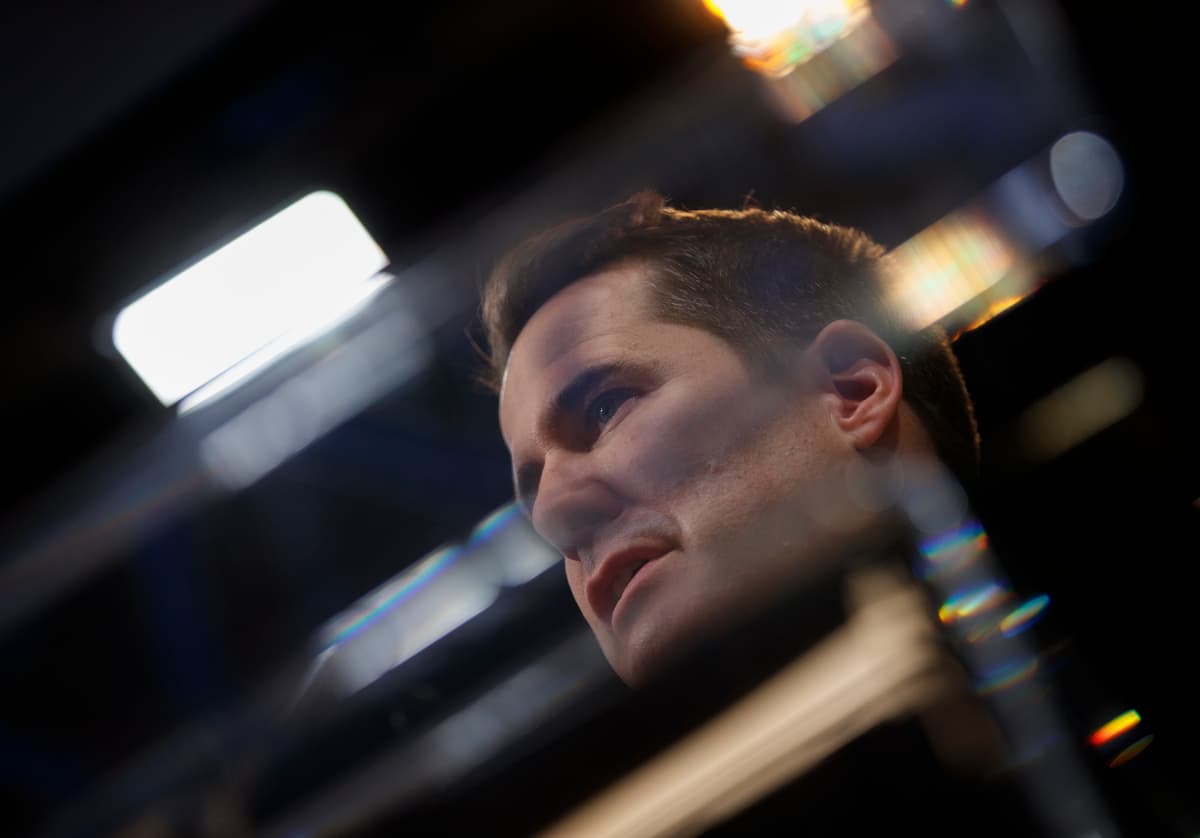Democrats Face Ugliest Primary Revolt in Decades, as Activists Look To Throw Their Party’s Social Security Recipients Overboard
Not since Watergate have Democrats been so poised to lose established leaders in Congress.

Although President Biden may want it to be bolstering foreign alliances or his green energy investments, it is possible that his most impactful legacy will be waking up Democratic voters to the crisis of gerontocracy in their party. In both the House and Senate, the vast majority of older Democrats running for re-election in 2026 are facing primaries not just due to their policy prescriptions, but because of their age and ability to fight.
One of the most famous intra-party congressional turnovers in history involved a group of lawmakers known as the “Watergate Babies” of the 1974 midterms. It refers to those Democrats who helped push out more senior — and more conservative — members of their party amid the chaos of the Watergate scandal. In the 50 years since, many of those Watergate Babies have gone on to become some of the nation’s most well-known liberals, including Senators Gary Hart, Patrick Leahy, and Paul Tsongas, among many others.
Next year’s midterms could end up being the most seismic intra-party event for the Democrats since that 1974 election. The elders of the party — much like Mr. Biden up until last summer — are vowing to hold on, however.
Of the three Senate Democrats over the age of 70 who are seeking another six-year term, two already have primary challengers.
The most notable Democratic challenge to an incumbent is in Massachusetts, where Senator Ed Markey is running for re-election at the age of 79. Should he win another term, he would be 80 at the time he is sworn in.
On Wednesday morning, Congressman Seth Moulton — a Harvard-educated Marine who tacks more toward his party’s center — announced he would run against Mr. Markey in the Democratic primary.
His announcement video was less about policy and more about vitality. It starts off with Mr. Moulton on a jog through a cemetery, and includes footage of him cooking breakfast for his two young daughters, as well as details about his service as a Marine infantry officer in Iraq, where he earned two Bronze Stars — both with the “V” for valor distinction.
Without mentioning him, Mr. Moulton makes it clear that his primary challenge to Mr. Markey is very much about Mr. Biden.
“We’re in a crisis, and with everything we learned [in] the last election, I just don’t believe Senator Markey should be running for another six-year term at 80 years old,” Mr. Moulton says in a direct-to-camera video. “Senator Markey is a good man, but it’s time for a new generation of leadership.”
In the House, the primaries situation is even more dire. Of the 51 Democrats over the age of 70 who are either planning on running or are considering running for another term in 2026, 35 of them — or nearly 70 percent — are facing younger primary challengers. Many of the candidates challenging the incumbents are running on the proposition that their current representatives are too old, too out-of-touch, or too ill-equipped for this political moment.
Compare that to the Republicans of the same age cohort. Among the 32 GOP House members over the age of 70 who are seeking another term next year, just 17 — or 53 percent — are facing a primary challenge.
Despite the base of the Republican Party skewing older than the Democratic Party, the average age of a Republican in Congress is less than that of a Democrat. The average age of a Democratic lawmaker is 59 years old, while the average age of a Republican is 58.
The Democratic challengers are also raising impressive sums of money. A former mayor of Hartford, Connecticut, Luke Bronin, has raised more than $1.2 million for his bid to unseat his 77-year-old Democratic representative, Congressman John Larson. Saikat Chakrabarti, who is running in the Democratic primary against Speaker Nancy Pelosi, has raised more than $600,000. a Tennessee state representative, Justin Pearson, running to unseat Congressman Steve Cohen, raised $200,000 in donations in just the first 24 hours of his campaign.
It isn’t just challenges to sitting members of Congress that could open some rifts in the party. Governor Janet Mills of Maine, who announced Tuesday that she would run to take on Senator Susan Collins next year, was immediately criticized by some of the party’s activists for stepping on the toes of their preferred left-wing candidate. That contender is a combat veteran and oyster farmer, Graham Platner, who has pledged to not vote for Senator Chuck Schumer to be Democratic leader should he become a senator in 2027.
Ms. Mills would be 79 at the time she is sworn in as a senator, if she wins the race. If you take even a passing glance at the comments section of any of her social media pages, you will see dozens, if not hundreds of comments from Mainers and non-Mainers alike asking her to abandon her Senate campaign in favor of a “new generation” of leadership.

